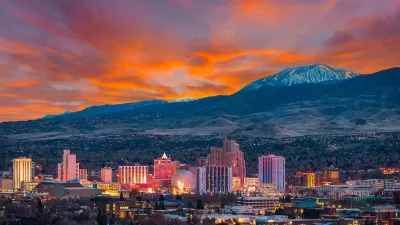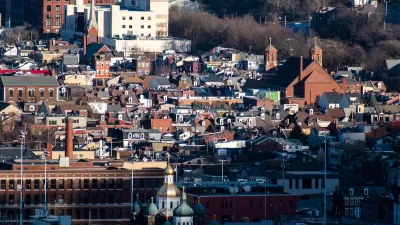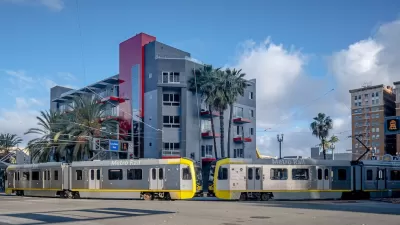In his book, The Rent Is Too Damn High, Matthew Yglesias encourages us to reexamine our assumptions about which urban policies our values really support.
When it comes to local politics, it appears that many people have their ideologies confused, according to Yglesias:
"When progressives, for example, see a fight pitting a neighborhood activist against rich developers, their instinct is to side with the activist, even if all the developer really wants to do is erect a building that will allow a lot more people to live or work or shop in their neighborhood. Indeed, the vast majority of big city residents are deeply committed to liberal politics on the national level, but feel just as comfortable standing with entrenched interests seeking to block change on a local level."
Because liberal politics often advocate for greater economic equality, Yglesias writes, liberals can be distracted by the wealth of real estate developers, often at the peril of families who need a home and businesses that need patrons who live nearby.
And conservatives are just as culpable for crossing wires, he argues. Few are ever seen at the helm of efforts to eliminate parking requirements and reform anti-density land use regulation, in spite of loudly-proclaimed small-government values. "Ideological battles focus much more on questions of identity, and the conservative movement has strongly positioned itself as an anti-urban movement (see Rick Santorum's city-bashing over the weekend) for conformism-minded suburbanites."
Regardless of ideological arguments about the virtues and perils of cities, however, Americans are continuing to move into the urban core. The challenge for both sides, it would seem, will be to do away with government policies that artificially encumber life and business there.
FULL STORY: The Mixed-Up Politics of Urbanism

Alabama: Trump Terminates Settlements for Black Communities Harmed By Raw Sewage
Trump deemed the landmark civil rights agreement “illegal DEI and environmental justice policy.”

Planetizen Federal Action Tracker
A weekly monitor of how Trump’s orders and actions are impacting planners and planning in America.

The 120 Year Old Tiny Home Villages That Sheltered San Francisco’s Earthquake Refugees
More than a century ago, San Francisco mobilized to house thousands of residents displaced by the 1906 earthquake. Could their strategy offer a model for the present?

Ken Jennings Launches Transit Web Series
The Jeopardy champ wants you to ride public transit.

BLM To Rescind Public Lands Rule
The change will downgrade conservation, once again putting federal land at risk for mining and other extractive uses.

Indy Neighborhood Group Builds Temporary Multi-Use Path
Community members, aided in part by funding from the city, repurposed a vehicle lane to create a protected bike and pedestrian path for the summer season.
Urban Design for Planners 1: Software Tools
This six-course series explores essential urban design concepts using open source software and equips planners with the tools they need to participate fully in the urban design process.
Planning for Universal Design
Learn the tools for implementing Universal Design in planning regulations.
Clanton & Associates, Inc.
Jessamine County Fiscal Court
Institute for Housing and Urban Development Studies (IHS)
City of Grandview
Harvard GSD Executive Education
Toledo-Lucas County Plan Commissions
Salt Lake City
NYU Wagner Graduate School of Public Service





























